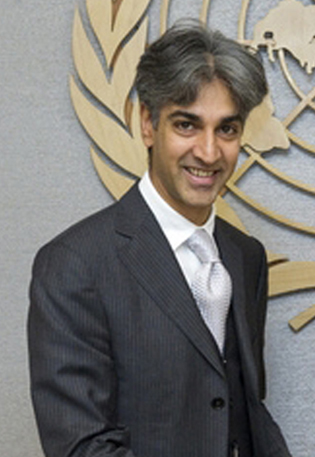The coming of age of Mauritius as an international arbitral venue
Share

The XXIIIrd Congress of the International Council for Commercial Arbitration (ICCA) will take place next week in Mauritius. The ICCA Congress takes place every two years and is the largest gathering of pre-eminent arbitration practitioners on the planet. This is the first time it will take place in Africa in its 50-year history. From Sunday afternoon, when Nobel Peace Prize Laureate Dr Mohamed ElBaradei pronounces his keynote speech to Wednesday afternoon, when Lord Hoffmann and our Attorney General close it, the eyes of the entire arbitration community, and through them that of their clients and users – financiers, traders and investors, will be on Mauritius.
Arbitration is a mechanism which allows parties to have their disputes resolved by a tribunal designated by themselves, rather than by a national court system. It has well established rules, designed by international bodies such as the United Nations Commission for International Trade Law (UNCITRAL). It is not a form of mediation, but a binding dispute resolution system, which results in a bin-ding judgment which is referred to as an “arbitral award”. It has been hugely successful and has become – to use a formula coined by the French Court of Cassation – le mode usuel de résolution des différends du commerce international. There are many reasons for that success, but one can point to two essential factors. First, there is often no alternative to arbitration, as commercial users refuse to litigate before the national courts of their respective countries, and as States which participate in trade and the promotion of investment refuse to litigate before a foreign national court. Secondly, it is usually easier to enforce an arbitral award than a national court judgment thanks to the existence of a dedicated worldwide convention on the enforcement of awards, the New York Convention of 1958.
Mauritius has long had a thriving system of domestic arbitration, usually run directly by the parties under the supervision of the courts (so called ad hoc arbitration) or administered by the various trade associations on the island. But it did not have any involvement in international arbitration, nor any credible institution to administer international arbitrations. Yet, like Switzerland in Europe and Singapore in Asia, it was ideally placed to become the main platform for international arbitration in its region, Africa. Following sustained efforts nurtured by a supporting and non-interfering government, Mauritius now stands to play a major role in this field on our continent and beyond. Our International Arbitration Act, passed in 2008, is studied in universities around the world and emulated by our neighbours. Our international arbitration centre, the Mauritius International Arbitration Centre, or LCIA-MIAC, is being named to resolve disputes in contracts the world over, and has recently won the prestigious Global Arbitration Review Award as the foremost upcoming regional arbitration centre in the world. A dedicated international arbitration hearing centre is scheduled to open later this year.
As over 800 delegates prepare to make their way to Mauritius and the livestreams await the flow of images, including those of our special guest, the Secretary General of the United Nations, the ICCA Congress will be a unique opportunity to showcase to the world what we have built in this field, and to attract business.
This has ramifications which go well beyond the immediate interests of those who stand to benefit from a growth of international arbitration on the island, lawyers who will argue cases in arbitral proceedings and in Court, and hoteliers who will host hearings, arbitrators and parties.
First, the establishment of a state-of-the-art and safe form of international arbitration here in Mauritius means that Mauritian and African businessmen no longer have to slavishly accept the usual offer of European or Singapore arbitration in their business deals. LCIA-MIAC is run by the London Court of International Arbitration, which has impeccable credentials in the field and a longstanding track record, so that an offer of LCIA-MIAC arbitration cannot be easily dismissed by our foreign counterparties.
Secondly, international arbitration is intimately linked to our financial services sector, a link expressly recognised by our International Arbitration Act and by the FSC, which has made the presence of an arbitration clause in the incorporation documents of GBL companies an important criterion of the “substance” which such companies must demonstrate to benefit from localisation in Mauritius. The international arbitration project has thus been made an integral part of the Ministry of Financial Services, and – under the direct leadership of Minister Bhadain – stands to play a key role in Mauritius’ efforts to become the centre of operation of global law firms in Africa and the establishment of our international financial centre.
Thirdly, Mauritius’ leading role in this field further establishes our credentials as a safe and neutral place in the region, subject to the rule of law and promoting the rule of law – a subject which will be the main theme of the ICCA Congress.
Fourthly and more importantly, it adds weight to our diplomatic clout in the region, as Mauritius becomes a key capacity building platform for the African continent, in this field as in others.
While some of those benefits are intangible, and the readers of this business publication do not perhaps much deal in intangibles, they should be in no doubt as to the importance of those factors to the growth of trade and investment on our island. We look forward to seeing many of them at the Congress, registration for which is still open at www.iccamauritius2016.com









